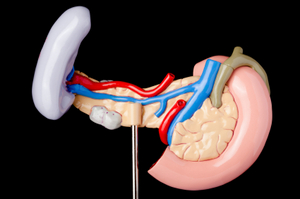
Committee members urge FDA to expedite releasing industry guidance.
Drawing attention to the need for developing an artificial pancreas, the Senate Committee on Homeland Security and Governmental Affairs held a hearing on diabetes research last week.
The hearing, overseen by Senator Susan Collins (R-ME), brought together witnesses from the National Institute of Health (NIH), Food and Drug Administration (FDA), and the Juvenile Diabetes Research Foundation (JDRF) to discuss ways to advance diabetes treatment.
Committee members and witnesses, who also included actor Kevin Kline as well as delegates from the JDRF Children’s Congress, urged the FDA to expedite the process of releasing industry guidance for the approval of an artificial pancreas system.
An artificial pancreas system would continuously monitor blood glucose levels in patients with type 1 diabetes and automatically control the release of insulin into the bloodstream. As such a system has yet to be developed, FDA guidance would help provide researchers and the biomedical industry with clear goals and expectations for how best to obtain approval for such a fully automatic artificial pancreas.
Many congressional questions at the hearing centered on the length of FDA’s review and approval process. For example, Senator Scott Brown (R-MA) criticized the FDA and its delays as “putting a wet blanket” on biomedical innovation.
Charles Zimliki, chair of the FDA’s Artificial Pancreas Critical Path Initiative, emphasized the initiative’s focus on streamlining the approval process and improving innovation.
Griffin Rodgers, Director of the National Institute of Diabetes and Digestive and Kidney Diseases, discussed the NIH’s ongoing efforts to pursue diabetes treatments including a recent study aimed at determining causes of childhood diabetes.
Earlier on the same day as the hearing, the FDA released a draft guidance for the approval of one early type of artificial pancreas system – a partly automatic low glucose suspend device system which offers protection from severe hypoglycemia.
Dr. Zimliki from the FDA noted that he expects the agency to issue a guidance document for all types of artificial pancreas systems before the end of this year.



